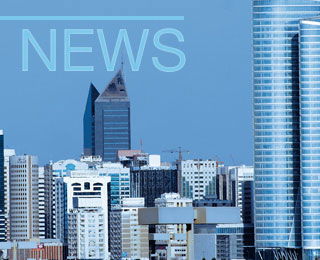Titan's turnover improved by 2.7 per cent in 2014 to EUR1158.4m but the EBITDA emerged 2.6 per cent lower at EUR181.6m. Following an 8.5 per cent reduction in the depreciation charge, the trading profit advanced by 7.0 per cent to EUR76.6m.
The net financial charge increased by 6.2 per cent to EUR65.7m and there was a EUR31.1m foreign exchange gain compared with a loss of EUR18.4m in the previous year. There was a pre-tax profit of EUR46.8m compared with a EUR9.4m loss the year before. At the net attributable level the swing was from a EUR36.1m loss to a profit of EUR30.9m.
Capital expenditure was more than doubled to EUR82m and is expected to increase by around 50 per cent this year with most of the spending being undertaken in the USA and in Egypt.
Net debt at the end of December was 6.3 per cent higher at EUR541m, to give a gearing level of 35.9 per cent compared with the 38.0 per cent shown a year earlier.
Group sales of cementitious materials declined by seven per cent to 16Mt largely because of the reduced Egyptian volumes. Sales of aggregates were helped by higher volumes in the United States and rose by 13.6 per cent to 14.2Mt, while ready-mixed concrete deliveries rose by 13.7 per cent to 3.9Mm³.
The decline in Greek cement consumption came to an end last year, with cement prices stable at a slightly lower level than in the previous year. A recovery in public spending, with road works being the main driver, led to double-digit increases in domestic deliveries and in sales of aggregates and ready-mixed concrete. Export sales were also ahead, in particular sales of clinker. The higher capacity utilisation along with lower fuel and electricity costs and an increased utilisation of alternative fuels considerably boosted margins. Titan's Greek and Western European turnover improved by 14.3 per cent to EUR284.9m, while the EBITDA jumped from EUR14.3m to EUR37.1m.
Turnover in South Eastern Europe declined by 3.5 per cent to EUR207.8m, but the EBITDA increased by seven per cent to EUR67.1m with economic activity remaining at a low level. The improved margin can be attributed to lower energy prices and an increased use of alternative fuels. Average cement sales in the region declined because of a sharp drop in construction activity in Albania, which saw more of the cement produced there being exported. Domestic cement prices the region improved on average and margins are not only the highest in the group, but in 2014 were more than twice those of the next best region.
Turnover in the United States increased by14.1 per cent to EUR411m and the EBITDA recovered by a further 44.9 per cent to EUR46.5m. This was helped by cement demand growing in all of Titan's main US markets. This recovery was most noted in Florida, where volumes grew in double digits, not just in cement but also in aggregates and ready-mixed concrete. Titan has invested in increasing its ready-mixed concrete capacity. Separation Technologies continued to advance and is increasing research and development spending in order to expand its activities to the processing of other minerals, which should widen its activities beyond fly-ash.
The Eastern Mediterranean region is now restricted to Egypt as the revised accounting rules now exclude the Turkish joint-venture. Egyptian turnover declined by 22 per cent to EUR196.8m and the EBITDA dropped by 60.1 per cent to EUR30.9m. Production was seriously curtailed by gas shortages and clinker had to be imported from the fellow subsidiaries in Greece and Albania. A first grinding mill for solid fuel went on-stream in December, with a second mill following during the third quarter of 2015. Prices were increased, but not by enough to cover the rise in gas and electricity costs. The Turkish joint venture increased turnover by six per cent in local currency, which translated into a four per cent decline on conversion and the profit contribution amounted to EUR4.6m.

Power Cement reports positive 3Q and 9MFY24-25 results
Pakistan-based Power Cement Ltd posted PKR7.182bn (US$52.5m) in revenue for the quarter ended ...